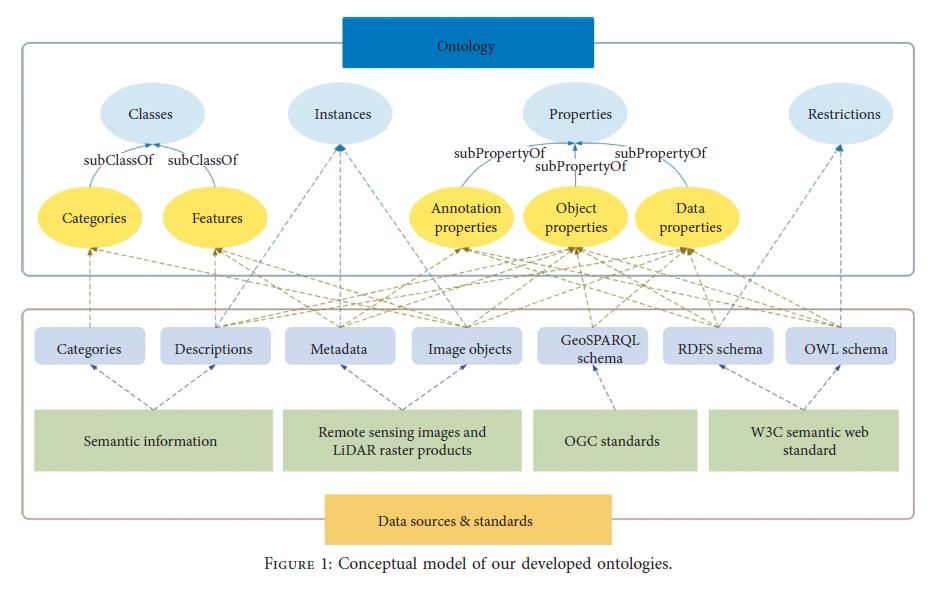【论文摘要】Although previous works have proposed sophisticatedly probabilistic models that has strong capability of extracting features from remote sensing data (e.g., convolutional neural networks, CNN), the efforts that focus on exploring the human’s semantics on the object to be recognized are required more explorations. Moreover, interpretability of feature extraction becomes a major disadvantage of the state-of-the-art CNN. Especially for the complex urban objects, which varies in geometrical shapes, functional structures, environmental contexts, etc, due to the heterogeneity between low-level data features and high-level semantics, the features derived from remote sensing data alone are limited to facilitate an accurate recognition. In this paper, we present an ontology-based methodology framework for enabling object recognition through rules extracted from the high-level semantics, rather than unexplainable features extracted from a CNN. Firstly, we semantically organize the descriptions and definitions of the object as semantics (RDF-triple rules) through our developed domain ontology. Secondly, we exploit semantic web rule language to propose an encoder model for decomposing the RDF-triple rules based on a multilayer strategy. Then, we map the low-level data features, which are defined from optical satellite image and LiDAR height, to the decomposed parts of RDF-triple rules. Eventually, we apply a probabilistic belief network (PBN) to probabilistically represent the relationships between low-level data features and high-level semantics, as well as a modified TanH function is used to optimize the recognition result. The experimental results on lacking of the training process based on data samples show that our proposed approach can reach an accurate recognition with high-level semantics. This work is conducive to the development of complex urban object recognition toward the fields including multilayer learning algorithms and knowledge graph-based relational reinforcement learning.
【论文信息】Xiao Xie, Xiran Zhou, Jingzhong Li, and Weijiang Dai. An Ontology-Based Framework for Complex Urban Object Recognition through Integrating Visual Features and Interpretable Semantics[J]. Complexity, 2020; doi: 10.1155/2020/5125891


